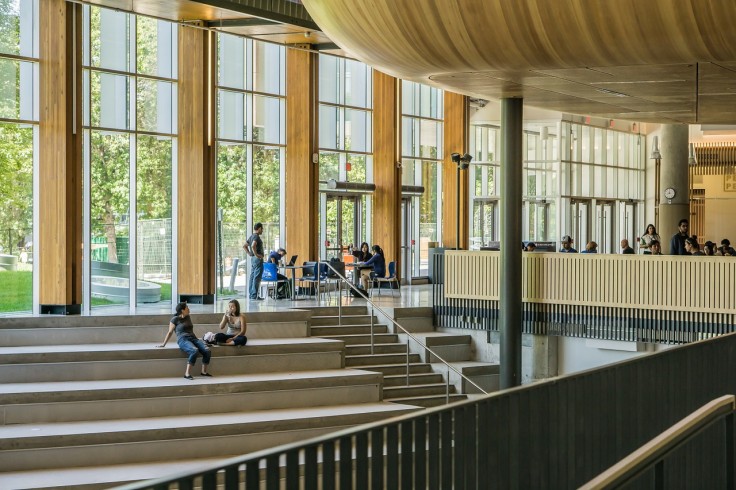
While some parents did not have the opportunity to attend college, it sometimes is a dream they have for their children. They try to save as much money as they can to help their kids pay for their education while other families cannot afford to help.
Even though the cost of attending college is on the rise, there are so many benefits to investing in someone's future. For those who are the first in their family to enroll in postsecondary education though, the experience could be drastically different.
For a closer look at first-generation college students, CollegeFinance.com asked more than 1,000 former first- and continuing-generation college students to understand their motivations for enrolling, how their experiences differed, and how they paid for their education.
Family First
The study defines a first-generation college student as someone who enrolled in postsecondary education and whose parents do not have any college experience. Approximately 33% of the people surveyed identified as first-generation college students.
There were many reasons why people chose to attend college, but to be better qualified (76%), to earn a better future (63.2%), and to earn more money (62%) were at the top of the list for first-generation students. People with parents who attended college, or continuing-generation students, felt those reasons were important too, but on a lesser scale. For example, continuing-generation students were nearly nine percentage points less likely to want to attend college to earn more money.
Continuing-generation students (45.4%) were more likely to feel they had something to prove than first-generation students (38%). Both sets of students prioritized the distance from home (47.6%), the cost of attending a postsecondary school (44.8%), and the majors available (44.7%) when deciding which school to attend.
College Difficulties
Making the transition to a college or university can be difficult for anyone. Still, nearly 9 in 10 first-generation college students experienced academic challenges, and more than half (58%) struggled socially.
But just because there was a struggle doesn't mean they quit. According to the study, nearly 3 in 5 respondents said they never considered dropping out. Approximately 28.5% of people said they considered quitting but still completed their degree. Only 12.5% of first-generation students surveyed said they dropped out.
Nearly half (48%) of first-generation students said finances were the primary reason they considered quitting. Adjusting to campus life (47.8%), work-school balance (40.7%), and fitting in on campus (38.7%) were among the most common struggles for students who are the first in their family to attend college. But despite the difficulties, 70% of these students were satisfied with their decision to go to college.
Stretching the Dollar
How people will pay for college is a stressor for most students. The study revealed that first-generation students (52.8%) were slightly less likely to earn scholarships than continuing-generation students (58.9%). Moreover, continuing-generation students were 18 percentage points more likely to receive help from their family than first-generation students.
As a result, more first-generation students need to apply for student loans to enroll in college. Along with loans, more than 3 in 4 first-generation students qualified and received financial aid from their schools.
The most significant difference in financial help between the two types of students analyzed was how much money students received from their families. First-generation college students were nearly nine percentage points more likely to receive $24,999 or less in help from their family, but 26.6% of continuing-generation students were given at least $25,000 to go to school, compared to just 18% of first-generation students.
School-Life Balance
Forty-three percent of first-generation students felt they were living a double life trying to keep their college and family life separate. The study shows that these students are likelier than continuing-generation students to perform well academically, prove their capability to themselves, and help support their family.
On top of college-related struggles, 21% of first-generation students said they did not have family support during this time. Almost half (46%) worked part-time or full-time jobs to support their families during college. But 37% of first-generation college students said that continuing their education after high school is no longer an unfamiliar concept for their family.
If you are the first in your family to attend college, navigating the nuances of it all can be complicated. But those who went through it say that if you stay organized, go to class, and are proactive about financial assistance, anyone can thrive in postsecondary school.